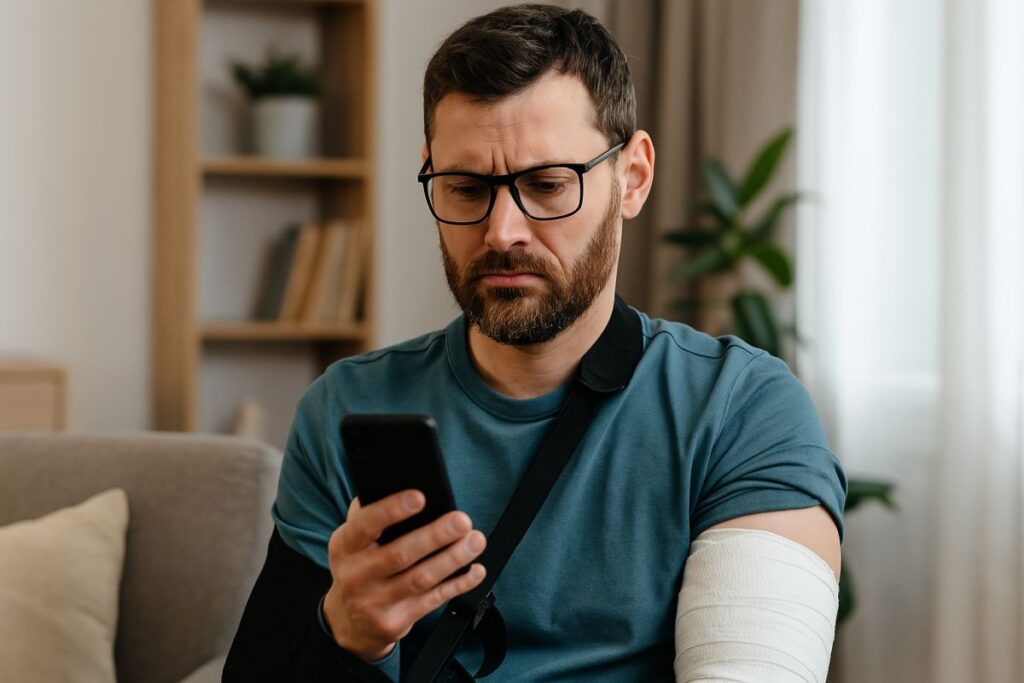You get hit. You’re shaken up. Maybe it’s the first time in your life a car crash leaves you sore, angry, or genuinely afraid of what might happen next. And just like always, your phone is nearby—buzzing with messages, full of habit. So you post. A photo. A comment. Maybe a joke. You think you’re venting, or just updating friends. But if you’re filing an injury claim in Georgia, that moment could cost you.
Why What You Share Online Isn’t Just Between Friends Anymore
Let’s be blunt: if you’re in a personal injury case, you’re being watched. And not just by people you know. Insurance companies dig. Their attorneys dig deeper. That gym selfie, that check-in at a restaurant, that sarcastic “feeling better than ever!” caption—none of it exists in a vacuum.
Georgia courts have ruled that even private social media content can be requested as evidence. Your privacy settings don’t block subpoenas. Your deleted posts aren’t really gone. If there’s something online that can be used to argue that your injuries aren’t serious—or worse, that you’re dishonest—it will surface.
It’s Not Just About Obvious Contradictions
The danger isn’t always a photo of you hiking after claiming a back injury. Sometimes it’s subtle. A smile in a group photo. A comment that sounds upbeat. A tagged event where you were “just sitting”—but the defense attorney turns it into a night out that “must’ve been fine.”
Even supportive comments from friends can get twisted. “You’re looking good!” or “Glad to see you back on your feet!” might sound like encouragement, but to the wrong pair of eyes, they can imply you’ve recovered.
How Posts Can Be Interpreted—Whether That’s Fair or Not
Social media strips context. Tone, timing, intent—it’s all flattened. That “accidents happen” post? A casual statement becomes a legal admission. That “I should’ve stayed home” tweet? Suddenly, it’s an acknowledgment of fault.
And it’s not just your own posts. Friends tagging you at parties, coworkers uploading group shots from an event you barely attended—if you’re in that frame, it’s evidence. You can’t control what others share, but you can control how searchable your name becomes.
What Juries See—And What They Think
A personal injury case isn’t only about documents and x-rays. Jurors are people. They look at who you are. If your feed paints a picture that doesn’t match the story your lawyer is telling, the doubt starts to creep in.
They don’t have to dislike you. They just need a reason to hesitate. A flashy lifestyle, a string of vacation photos, or even a habit of venting online can create questions: “Do they really seem that affected?” “Is this more about money than harm?”
Perception matters. And in Georgia courtrooms, it matters a lot.
Privacy Settings Aren’t a Shield
You’d be surprised how often we hear this: “But my profile’s locked down.” That doesn’t mean it’s safe. Opposing attorneys can request access through discovery. They can ask the court to compel you to turn over messages, photos, and even deleted posts.
Screenshots circulate. Cached content exists. Friends of friends might not be on your side. Once it’s online, it’s not just yours anymore.
So What Should You Actually Do?
We’re not saying disappear from the internet. But if you’re pursuing an injury claim in Georgia, here’s what we recommend—without legal jargon:
- Don’t post about the accident. Not now. Not in vague terms. Not even as a joke.
- Avoid anything that shows physical activity. Even if it’s a good day. Especially if it’s a good day.
- Tell friends not to tag you. Let them know you’re keeping a low profile for a reason.
- Don’t accept random follow requests. Investigators sometimes create fake accounts.
- If in doubt, log out. A digital break might help more than you think.
- Talk to your lawyer before posting anything personal. Yes, anything.
What a Good Lawyer Will Do About It
At Prine Law Group, we don’t just handle the paperwork. We walk clients through digital risk. If we take your case, we’ll ask early about your social media history—not to judge, but to prepare. We’ll tell you what could be flagged. We’ll deal with opposing counsel when they push for access. And we’ll make sure nothing online undermines the truth of what happened to you.
This isn’t about hiding the truth. It’s about keeping the story clear and consistent, so it’s judged on the facts—not on filtered impressions.

You Deserve a Fair Shot—Don’t Let a Post Get in the Way
In Macon, Georgia, a personal injury claim can mean the difference between financial stability and years of debt. Don’t let a moment of online instinct ruin that. Think before you post. Or better yet, pause altogether.
📞 If you’ve been injured and need guidance, call (478) 257-6333 or contact us online.
We’ll handle the law. You just focus on getting better—and staying smart while you do.





